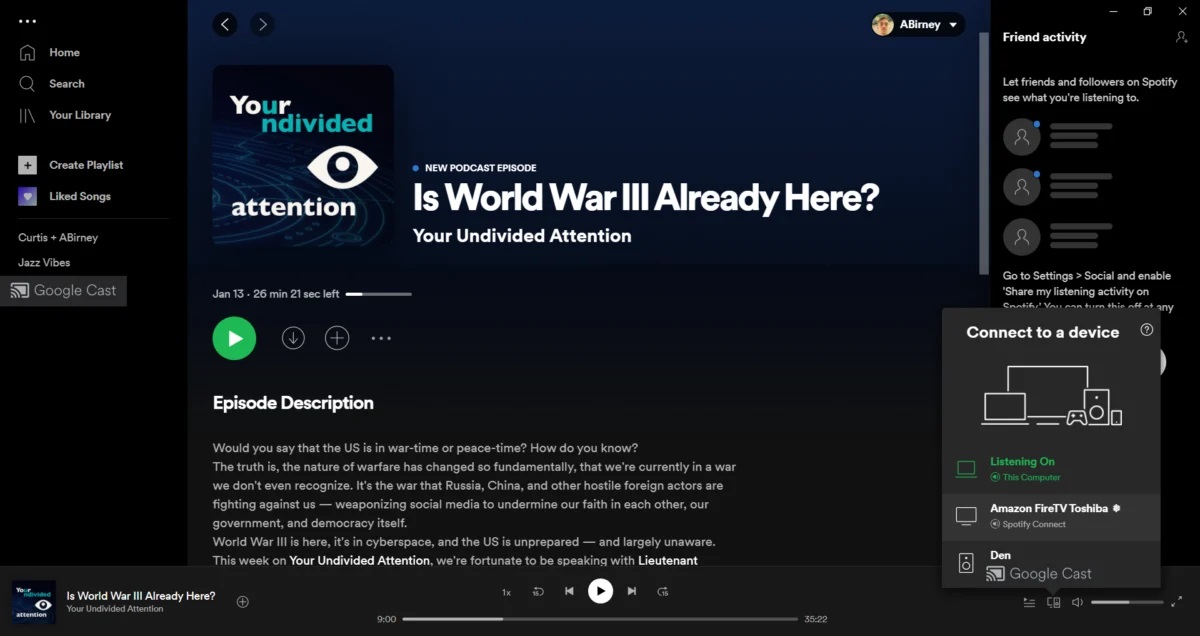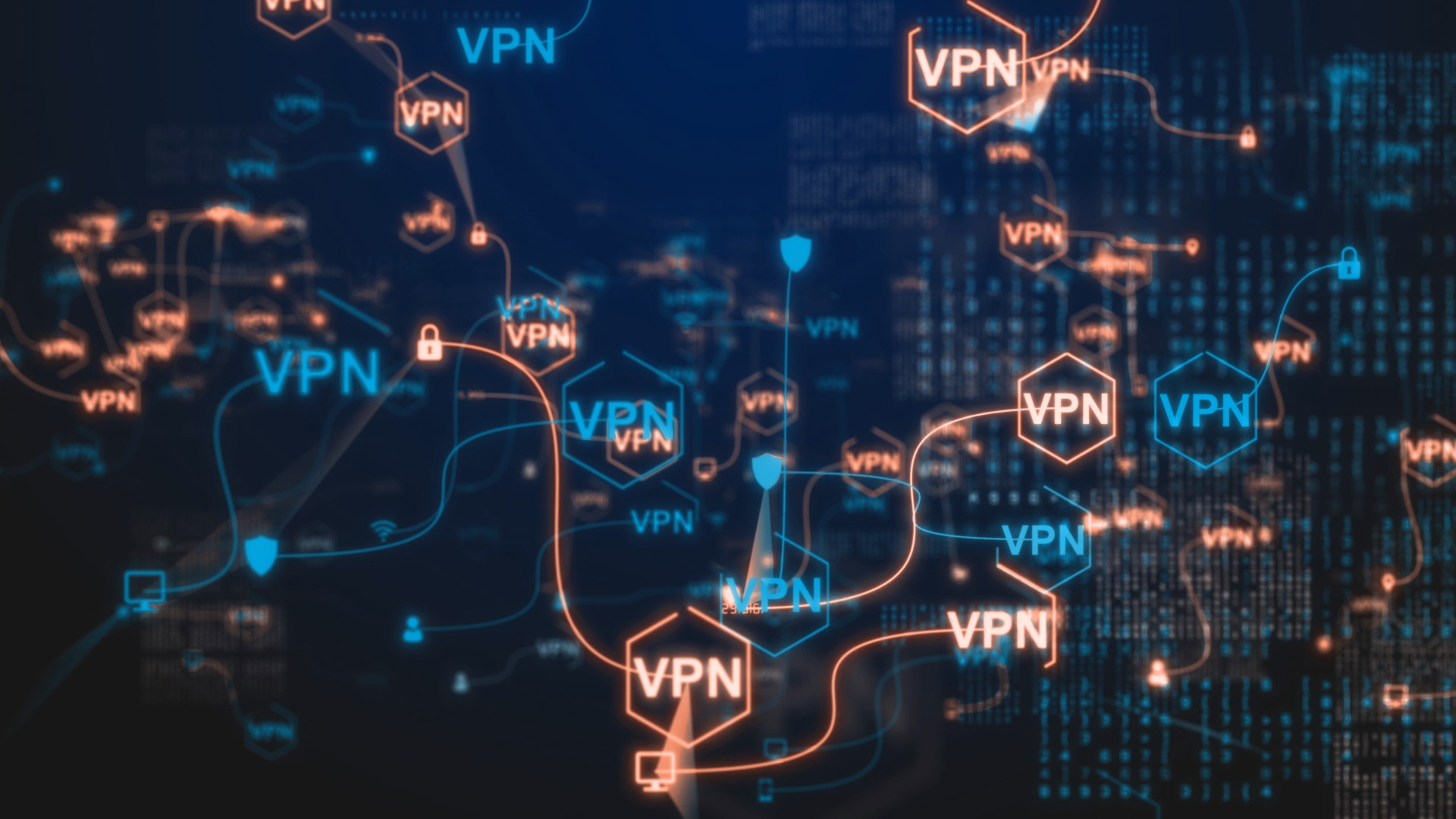Home>Software and Apps>The Ultimate Guide to VPN Clients: Everything You Need to Know


Software and Apps
The Ultimate Guide to VPN Clients: Everything You Need to Know
Modified: September 5, 2024
Looking for the best VPN clients? Our comprehensive guide covers everything you need to know about software and apps for secure and private browsing. Discover top-rated VPN clients and make an informed choice today!
(Many of the links in this article redirect to a specific reviewed product. Your purchase of these products through affiliate links helps to generate commission for Techsplurge.com, at no extra cost. Learn more)
Table of Contents
What is a VPN?
Understanding VPNs is crucial before diving into VPN clients. A VPN creates a secure, encrypted connection between your device and a VPN server. This connection masks your IP address, making it difficult for third parties to track online activities. VPNs are commonly used to:
- Bypass geo-restrictions: Access content unavailable in your region.
- Enhance security: Protect data from hackers and cyber threats.
- Maintain anonymity: Hide IP address and browsing history.
Types of VPN Clients
Several types of VPN clients exist, each with unique features and functionalities. Here are some common types:
OpenVPN Clients
OpenVPN is a popular VPN protocol offering robust security features. It is widely supported by various VPN services and available for both Windows and macOS.
L2TP/IPSec Clients
L2TP/IPSec is another widely used VPN protocol providing strong encryption. Often used with OpenVPN, L2TP/IPSec clients are available for Windows and macOS.
PPTP Clients
PPTP (Point-to-Point Tunneling Protocol) is an older VPN protocol known for its simplicity. However, it is less secure compared to OpenVPN and L2TP/IPSec.
Read more: The Ultimate Guide to the Top Free VPNs
SSTP Clients
SSTP (Secure Socket Tunneling Protocol) is a proprietary protocol developed by Microsoft. Primarily used for Windows-based systems, it offers strong encryption.
WireGuard Clients
WireGuard is a relatively new VPN protocol gaining popularity due to its simplicity and high performance. Designed to be fast and secure, it is an attractive option for many users.
Features to Look for in a VPN Client
When selecting a VPN client, consider several features to ensure the best service for your needs:
Security
The primary purpose of a VPN is to enhance security. Look for clients offering robust encryption methods such as AES-256 or ChaCha20.
Speed
While security is crucial, speed is also important. Opt for clients providing fast connection speeds for smooth browsing and streaming experiences.
Server Locations
The number and location of VPN servers can significantly impact your experience. Look for clients with numerous servers in various locations to access content from different regions.
Compatibility
Ensure the VPN client is compatible with your device. Most VPN services offer clients for Windows, macOS, Android, and iOS, with some supporting Linux or other operating systems.
Ease of Use
A user-friendly interface can make a significant difference in your experience. Look for clients with intuitive settings and easy-to-use interfaces.
Logging Policies
Some VPN services log user data, compromising anonymity. Opt for services with strict no-logging policies to ensure data remains secure.
Customer Support
Good customer support is essential for resolving issues. Look for services with 24/7 customer support and comprehensive FAQs.
Popular VPN Clients
Here are some of the most popular VPN clients available:
ExpressVPN
ExpressVPN is well-known for its user-friendly interface, robust security features, and fast connection speeds. It supports multiple protocols including OpenVPN, L2TP/IPSec, and PPTP.
NordVPN
NordVPN offers a large number of servers in various locations, strong encryption methods, and a user-friendly interface. It supports multiple protocols including OpenVPN, L2TP/IPSec, and WireGuard.
ProtonVPN
ProtonVPN focuses on security and privacy. It offers a free version with limited features and a paid version with additional features like access to more servers and faster speeds. ProtonVPN supports multiple protocols including OpenVPN and WireGuard.
TunnelBear VPN
TunnelBear VPN is popular among beginners due to its user-friendly interface and simple setup process. It offers a free version with limited features and a paid version with additional features like access to more servers and faster speeds. TunnelBear VPN supports multiple protocols including OpenVPN and L2TP/IPSec.
Private Internet Access (PIA)
PIA is known for its affordability and strong encryption methods. It offers a large number of servers in various locations and supports multiple protocols including OpenVPN, L2TP/IPSec, and PPTP.
How to Choose the Right VPN Client
Choosing the right VPN client can be overwhelming with so many options available. Here are some steps to help make an informed decision:
-
Define Your Needs
- Determine the purpose of the VPN. Are you looking to bypass geo-restrictions, enhance security, or maintain anonymity?
-
Check Compatibility
- Ensure the VPN client is compatible with your device. Most VPN services offer clients for Windows, macOS, Android, and iOS.
-
Evaluate Security Features
- Look for robust encryption methods like AES-256 or ChaCha20.
- Check if the service has a no-logging policy to ensure data remains secure.
-
Assess Speed
- Opt for services offering fast connection speeds for smooth browsing and streaming experiences.
-
Consider Server Locations
- A large number of servers in various locations can significantly impact your experience. Look for services with a global presence.
-
Ease of Use
- A user-friendly interface can make a significant difference in your experience. Look for services with intuitive settings and easy-to-use interfaces.
-
Customer Support
- Good customer support is essential for resolving issues. Look for services with 24/7 customer support and comprehensive FAQs.
-
Read Reviews
- Check out reviews from other users to get a better understanding of the service's performance and reliability.
-
Try Before You Buy
- Many VPN services offer free trials or money-back guarantees. Take advantage of these offers to test the service before committing to a paid plan.
Setting Up a VPN Client
Setting up a VPN client is relatively straightforward, but it can vary slightly depending on the service chosen. Here’s a general guide on how to set up a VPN client:
-
Download the Client
- Visit the website of your chosen VPN service and download the client software.
-
Install the Client
- Follow the installation instructions provided by the service. Most clients are easy to install and require minimal configuration.
-
Launch the Client
- Once installed, launch the VPN client and sign in with your credentials.
-
Connect to a Server
- Select a server location from the list provided by the service and click connect.
-
Verify Connection
- Once connected, verify that your IP address has changed and you are browsing securely.
Advanced Features of VPN Clients
While basic functionality is essential, many VPN clients offer advanced features that can enhance your experience:
Kill Switch
A kill switch automatically disconnects your internet connection if the VPN connection drops. This ensures data remains secure even if the VPN connection is lost.
Split Tunneling
Split tunneling allows you to choose which applications use the VPN connection and which do not. This can be useful if you want to use certain applications without the VPN.
DNS Leak Protection
DNS leak protection ensures DNS queries are routed through the VPN server, preventing any potential DNS leaks.
Obfuscation
Obfuscation hides the fact that you are using a VPN, making it difficult for third parties to detect VPN usage.
Common Issues with VPN Clients
Despite their benefits, VPN clients can sometimes encounter issues. Here are some common problems and their solutions:
Slow Speeds
Slow speeds can be caused by various factors including server overload or poor internet connection. Try switching to a different server location or optimizing internet settings.
Connection Drops
Connection drops can be caused by network congestion or server issues. Try restarting the client or contacting customer support for assistance.
IP Address Leaks
IP address leaks can occur if the VPN connection drops or if there is a DNS leak. Ensure the client has DNS leak protection and a kill switch to prevent such issues.
Choosing the right VPN client is crucial for maintaining online security and privacy. By understanding different types of VPN protocols, evaluating features of various clients, and setting up the client correctly, a secure and seamless browsing experience can be ensured. Whether a beginner or an advanced user, this guide provides everything needed to make an informed decision about VPN needs.









